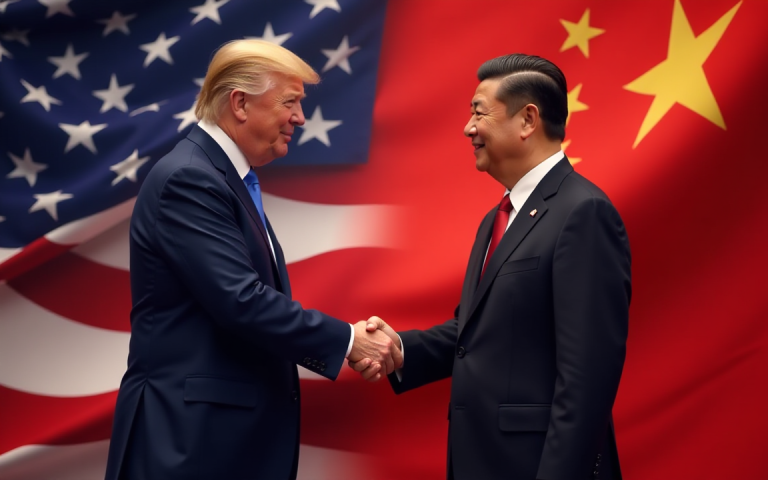When US President Donald Trump sits down with China’s Xi Jinping on Thursday in South Korea, one of the most scrutinized topics on the agenda will not be tariffs, rare earths, or fentanyl precursors alone; it will be Nvidia’s Blackwell AI chip.
What was unveiled months ago as a corporate product launch has crossed the line from earnings call to diplomatic leverage.
The United States has placed export restrictions on Blackwell-class processors to prevent Beijing from accessing the compute capacity it needs to train frontier AI models.
Why one Nvidia chip is suddenly a diplomatic instrument
Blackwell is Nvidia’s next-generation AI accelerator, succeeding the Hopper architecture that dominated data centers through 2024.
Built on a custom TSMC 4NP process, Blackwell packs 208 billion transistors, more than 2.5 times the count of Hopper’s H100, and delivers up to 20 petaflops of FP4 compute in a single unified GPU formed by connecting two reticle-limit dies.
It features fifth-generation NVLink with a bidirectional throughput of 1.8TB/s per GPU, enabling clusters of up to 576 GPUs to train multitrillion-parameter models.
Its second-generation Transformer Engine supports FP4 precision, effectively doubling the performance and model size that memory can support while maintaining accuracy.
For training large language models and mixture-of-experts architectures, Blackwell offers a 2.5-fold improvement over Hopper in training speed and up to five times faster inference.
This is not an incremental upgrade; it is a generational leap in the capability to build, scale, and deploy frontier AI.
The United States restricted Blackwell exports to China because that capability crosses into dual-use territory.
Frontier AI models can accelerate drug discovery and climate modeling, but they can also enhance military logistics, autonomous weapons systems, and intelligence operations.
Washington’s justification rests on a simple equation: compute access equals national AI capability, and national AI capability translates directly into military modernization potential.
Markets, Politics, and the fight that could follow the meeting
Wall Street’s fixation with Nvidia has made Blackwell more than a geopolitical tool — it is a multi-billion-dollar market variable.
Nvidia stock surged 5% on October 28 to an all-time high of $201.03 after CEO Jensen Huang’s keynote at the company’s Washington GTC event, pushing the company’s market capitalization to $4.89 trillion.
Analysts at HSBC set a street-high price target of $320, implying potential upside of nearly 60%, while Wells Fargo raised its target to $220, citing anticipated resumption of sales to China.
Huang himself has argued that Nvidia needs access to China’s $50 billion annual AI chip market to fund US-based research and development, and that policies isolating the company from half the world’s AI developers “hurt us more” in the long term.
The corporate stakes are stark: Nvidia’s China revenue fell from 95% market share to zero after Beijing discouraged domestic firms from purchasing even the downgraded H20 chips the company had designed specifically for compliance with US export limits.
If Trump grants export approval for Blackwell, or even a downgraded variant such as the rumored B30A, Nvidia could unlock billions in quarterly revenue and extend its dominance over Chinese cloud providers and AI startups.
But the political blowback could be severe.
Congressional Republicans and Democrats have voiced bipartisan opposition to loosening export controls, framing advanced chip sales to China as a threat to national security.
What to watch next: any statement from Trump or Xi that hints at export carve-outs, licensing frameworks, or deferral timelines for Blackwell-class chips.
If the joint communique references “technology cooperation” or “phased access” to advanced semiconductors, markets will reprice Nvidia immediately.
The post Nvidia Blackwell in Trump-Xi talks: Wall Street’s obsession just became diplomacy appeared first on Invezz

